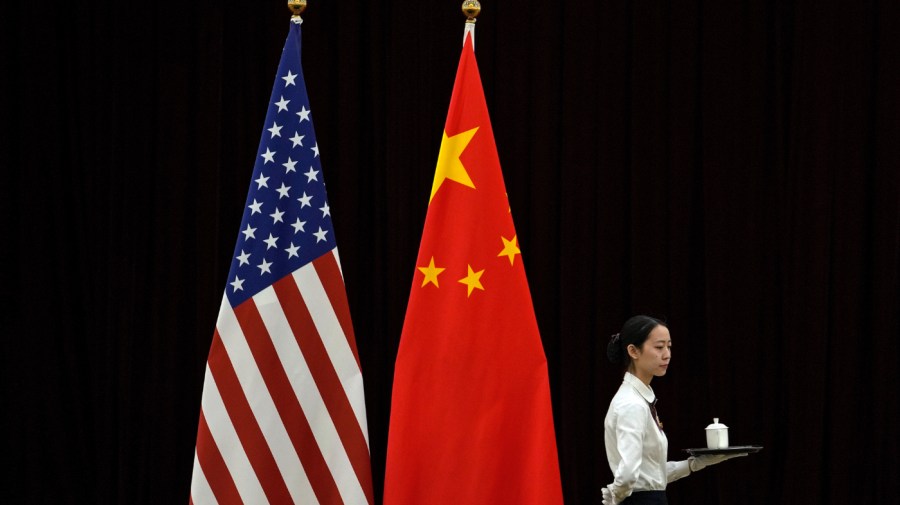
U.S. reliance on Chinese maritime cranes is presenting a national security risk since the cranes can be accessed remotely with built-in modems, Republicans on the House Select Committee on the Chinese Communist Party warned Friday in a staff report.
Describing the modems as “hidden” and “unauthorized,” the Committee said their discovery was troubling, as they were not requested by U.S. ports or mentioned in relevant legal contracts.
“These cellular modems, not requested by U.S. ports or included in contracts, were intended for the collection of usage data on certain equipment. This constitutes a significant backdoor security vulnerability that undermines the integrity of port operations,” the staff report says.
The cranes in question are made by the Shanghai Zhenhua Heavy Industry Co., Ltd., (ZPMC) a state-controlled enterprise in China that does business with ports all over the world.
House Republicans, expressing alarm at the potential vulnerability, also noted that ZPMC and similar Chinese companies were not contractually prohibited from installing backdoors into their hardware.
“ZPMC and other [Chinese state-owned enterprises] are not contractually barred from installing backdoors into equipment or modifying technology in ways that could allow unauthorized access or remote control, enabling them to compromise sensitive data or disrupt operations within the U.S. maritime sector at a later time,” the report said.
Chinese data collection of shipping and logistical information is part of the country’s “Going Out” strategy first articulated by Chinese premier Jiang Zemin in 2000, lawmakers said. That strategy encompasses the construction of new ports in the Indian Ocean as well as major infrastructure investments in Africa and trade and commercial initiatives across the Asian continent.
Lawmakers described the policy as “marking a pivotal shift in international economic dynamics.”
While the U.S. and Chinese economies are still deeply intertwined, with China holding heaps of U.S. debt and the U.S. buying loads of Chinese products, economic relations between the countries have exhibited signs of stress in the aftermath of the pandemic, as supply and value chains buckled under shutdowns, eventually contributing to a wave of global inflation.
Recent U.S. policy shifts toward domestic investment and manufacturing, notably in semiconductors, have added a tailwind to this turbulence, though many policy shops in Washington stress the economic symbiosis between the U.S. and China.

